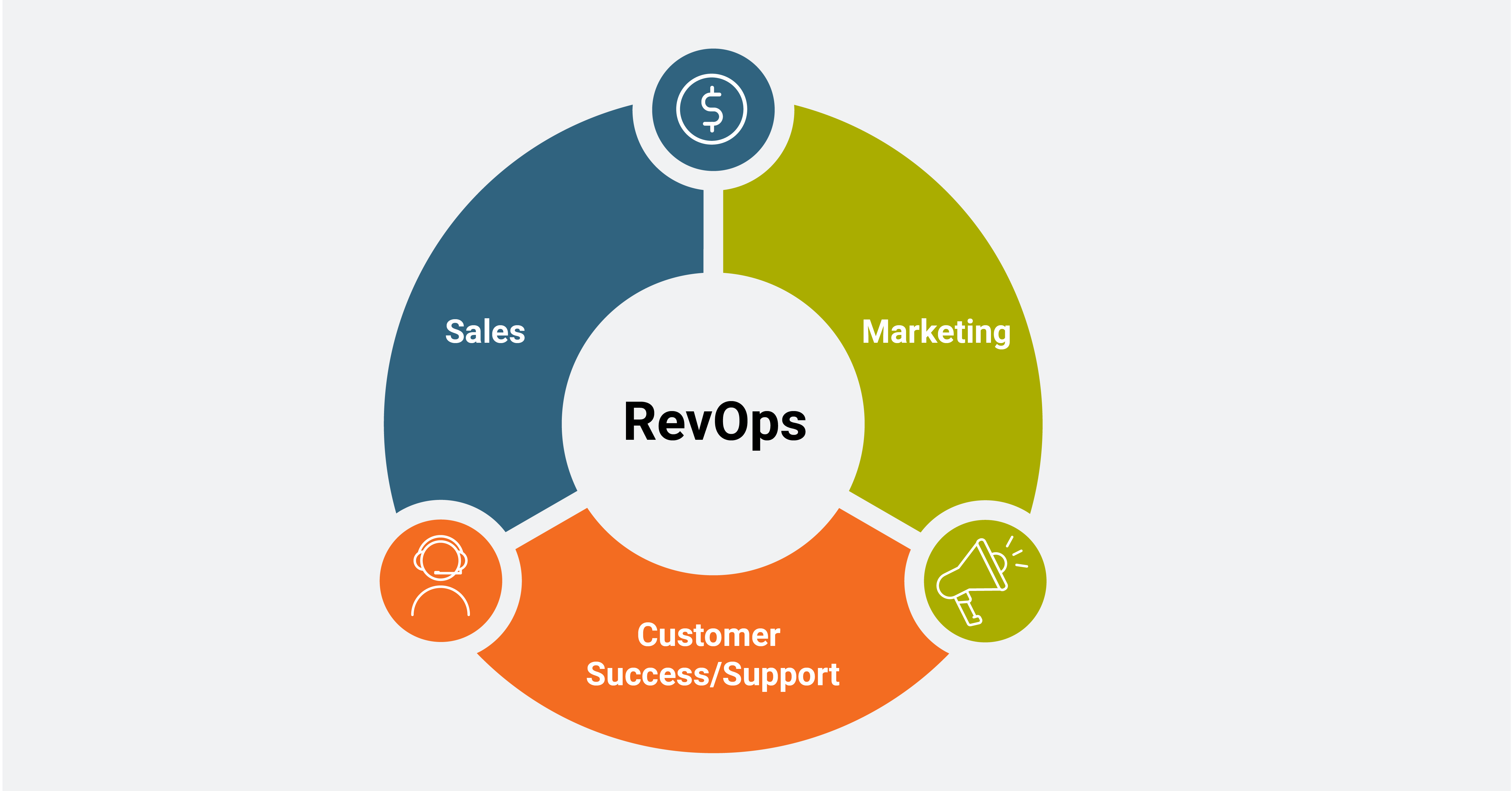[ad_1]
💬
Social-media startup Truth Social has branded itself as the anti-Twitter and the exclusive home of former President Donald Trump. Its prospects, the firm’s financial backers have disclosed in public filings, depend on monetizing Trump supporters’ rage over alleged “Big Tech” censorship of the political right.
As it turns out, it’s hard to build a social network to take on Big Tech without the help of Big Tech. The Trump venture’s pugnacious political approach has hobbled the company’s development from its inception, a Reuters examination of the origins of the secretive enterprise has found.
Trump Media & Technology Group (TMTG) has struggled to develop its social media platform since its February 2021 founding because its managers have sought to avoid potential corporate partners and employees perceived as politically liberal in a Silicon Valley-based industry that skews left, said three people with knowledge of its operations.
The feeling is mutual: Many engineers and tech firms won’t consider working with a Trump company, according to two of those people, two additional sources with knowledge of the venture and a May 16 filing with the Securities and Exchange Commission by the investment company that plans to merge with TMTG, Digital World Acquisition Corp, or DWAC. The mutual aversion has severely restricted the pool of talent and corporate partners available to help TMTG build a competitive social network on an ambitious timeline.
The reluctance of potential staffers and partners to work with TMTG is as practical as it is political: The firms fear an association with Trump will cost them customers, and tech workers worry it could hurt their careers, the people interviewed by Reuters said. The company risks facing the same challenge in seeking advertising from major companies, who want to avoid alienating the half or more of their customers in a politically polarized America who dislike Trump, according to two advertising experts.
This account of the company’s early challenges is based on interviews with 16 people with knowledge of its operations, all of whom spoke on condition of anonymity, and public filings by DWAC.
The company also faces serious challenges on the legal and financial fronts. DWAC disclosed on Monday that a federal grand jury convened by the Department of Justice (DOJ) in New York has issued subpoenas to all of its directors. The DOJ investigation dovetails with a probe by the Securities and Exchange Commission (SEC) that the investment company first disclosed in December. Word of the SEC inquiry came weeks after Democratic Senator Elizabeth Warren, of Massachusetts, asked the SEC to examine possible securities violations related to allegedly undisclosed private merger talks between TMTG and DWAC last year, before DWAC went public.
The SEC declined to comment on its investigation Monday; the DOJ did not immediately respond to a request.
DWAC said in an SEC filing Monday that the investigations could delay the proposed merger, which would also stymie a major cash infusion planned for Trump’s social media company.
TMTG said in a statement Monday that it would cooperate with SEC “oversight,” without mentioning the Justice Department probe, and said that it remained “focused on reclaiming the American people’s right to free expression” and improving the Truth Social app.
The company’s avoidance of Big Tech firms contributed to major problems with the February launch of its app on the Apple Store, relegating hundreds of thousands of users to a waiting list that wasn’t cleared until April. A person familiar with TMTG’s technical operations said the botched launch was caused by problems with servers, the remote computers that provide the storage and data-processing power to run websites.
The servers, the person said, had been provided by two smaller cloud providers with political credentials that suited TMTG: Rumble, a Canadian video-sharing platform that caters to conservatives but is brand new to the server business; and RightForge, an infrastructure firm that markets itself as a free-speech champion. The firms were chosen to replace cloud-computing industry leader Amazon Web Services (AWS), which was used early in the project but quickly ditched for political considerations, the person said.
AWS was particularly problematic because the cloud-computing unit of tech titan Amazon.com Inc. angered many on the political right last year by terminating services to Parler, the social network popular among conservatives, citing its failure to police posts inciting violence. In the May 16 filing, DWAC named Amazon among the Big Tech firms TMTG was “founded to fight,” because they “collude to limit debate in America and silence voices that contradict their woke ideology.” The list also included Twitter, Facebook, Netflix and Google, among “others” DWAC left unnamed.
An AWS spokesperson declined to comment. Parler did not respond to an inquiry.
An investor relations company representing TMTG issued a short statement in response to detailed questions from Reuters sent to representatives of Trump, TMTG and DWAC. The statement, from Shannon Devine, a managing partner at MZ Group, said the Reuters inquiry contained “false and defamatory statements.”
“It also includes misleading assertions and omits material facts,” wrote Devine, who said the statement was on behalf of TMTG’s legal department.
Devine did not specify what information was false or misleading and did not respond to a follow-up request for comment.
TMTG has also been hampered by a leadership team with little tech-industry experience and little interest in learning the operational details of software development, according to two people familiar with company operations.
Two people central to the company’s founding, Wes Moss and Andy Litinsky, are both former castmates on “The Apprentice,” the reality TV show that featured Trump before his presidency. Moss is also a managing partner at a wealth management firm in Atlanta. Litinsky previously worked at Trump’s TV production company and hosted a conservative radio show. He also ran a short-lived start-up, ConnectPal, a social-media site that charged subscribers to access users’ profiles before Litinsky dissolved the business in 2018, according to a regulatory filing.
Two people familiar with company operations said Moss and Litinsky essentially ran TMTG in its early days, before it hired CEO Devin Nunes, a former Republican U.S. congressman and dairy farmer. Nunes started in January, the month before the rocky app launch. He did not respond to a request for comment.
TMTG has not disclosed executive job titles for Moss and Litinsky. The May 16 filing identifies Moss as a director, but Reuters could not determine his current management role or level of involvement with the company. Moss did not respond to a request for comment.
Litinsky left the company “months ago,” according to a person familiar with the venture, without specifying his exact date or reason for departing. The exit of Litinsky, who now works as a media and technology consultant, has not been previously reported.
TMTG technology team members tried soon after the company’s launch to get Moss and Litinsky to commit to software-development best practices, such as identifying and prioritizing key user features, according to a person familiar with company operations. The two men called such suggestions a waste of time, the person said. When tech employees pressed Moss and Litinsky for the company vision, they said TMTG should replicate Twitter, the person said, except without content-moderation policies that irk some conservatives.
Such an imitative approach would reflect a fundamental misunderstanding of what’s required for tech-industry survival, said Aaron Ginn, co-founder of the Lincoln Network, an influential group of tech-industry conservatives. Like all startups, he said, TMTG must innovate to compete in the fierce battle for users’ attention.
“The question is whether or not the product has a unique invention,” Ginn said. TMTG, he said, needs to generate differentiated content that users “can’t get on Twitter.”
TMTG’s business model has looked shaky in light of recent news. Billionaire Elon Musk, who has a deal to buy Twitter, in May vowed to rescind that platform’s ban on Trump. Later, the May 16 DWAC filing disclosed that the platform’s “exclusive” deal with Trump isn’t so exclusive: It allows him to post political commentary “on any social media site at any time,” deepening doubts about his commitment to the enterprise.
A Twitter spokesperson declined to comment for this report.
TMTG’s fortunes are inextricably tied to Trump. He is billed by the company as the chief traffic driver. As chairman, he will control either 47% or 58% of the company’s voting power, depending on how preferred stock is handled once it merges with DWAC, the special purpose acquisition company. The merger requires approval from the Securities and Exchange Commission and is likely months away from closing.
🕸️
‘Comically low’ app downloads
Some early dysfunction is expected in startups, but unlike most new firms, TMTG did not have the luxury of learning on a small stage. Under the unceasing spotlight on Trump, the company had to build a platform to accommodate a large audience and uneven spikes in traffic from its first day, without the reliable tools most Silicon Valley developers depend on.
Platforms such as AWS server systems, for instance, have become so ubiquitous that many developers aren’t trained to work on anything else. That dynamic exacerbated already difficult recruiting and development processes, according to a person familiar with TMTG’s technical operations.
The tech team has started to get more traction recently. In late April, Truth Social finally cleared its waiting list for Apple device users and topped the charts for App Store downloads for about a week. In mid-May, the company released a version of Truth Social for web browsers.
One venture capitalist calls the 2.8 million downloads of the Truth Social app as of June 1 “comically low” for a high-profile enterprise associated with a former U.S. president.
The company, however, has yet to launch an app in Google’s Play Store for Android phones, which comprise about 40% of the U.S. smartphone market. And its user base remains a tiny fraction of its ambitious growth targets. TMTG told investors in November that the site would reach 56 million users by 2024 and 81 million by 2026. For comparison, the 2026 target would be about 35% of the number of daily users on Twitter today.
As of June 1, the Truth Social app had been downloaded 2.8 million times, according to data analytics firm Sensor Tower. One venture capitalist called that figure “comically low” for a high-profile venture backed by a former U.S. president. Gene Munster, a managing partner at Minneapolis-based technology investment firm Loup, said he would have expected more like 25 million downloads given the heavy attention the project has drawn.
“Is it that the platform wasn’t working right? Is it that they aren’t getting their message out?” he asked. “I’m shocked … that’s low.”
⭐
Cast of characters
The team seeking to monetize Trump’s social-media magnetism has been a revolving cast from politics, tech, reality TV and other industries. The firm has had three different technology chiefs in its first year.
The idea for Truth Social started with the duo from the “Apprentice,” the show that forced contestants to compete in business challenges for a job in Trump’s real-estate empire. In January 2021, Moss and Litinsky pitched Trump on a social network that could restore his unfiltered access to the American people, according to a person familiar with the company’s founding. Twitter and Facebook had just banned Trump after concluding he had incited or glorified violence during the U.S. Capitol riot earlier that month.
Trump greenlit the idea, and by June a small team set to work on it, according to a person familiar with company operations. Fellow “Apprentice” alum Nicholas Warnock, a California insurance salesman, was one early team member. Warnock previously spent more than a decade at a digital book company. He was sued in 2019 by his former business partner, who alleged Warnock had “absconded” with money, court filings show. A California judge last year ordered Warnock to pay more than $310,000, a decision Warnock has appealed.
Warnock did not respond to requests for comment. Reuters could not determine his specific role or current employment status at TMTG.
Another early team member was Will Russell, a former deputy travel director in Trump’s White House. The chief financial officer was Phillip Juhan, who previously held the CFO role at bankrupt fitness chain operator Town Sports International, according to the May DWAC filing. Chief Technology Officer Jay Dalke, an Atlanta tech-industry veteran, was among the few early hires with significant tech-industry experience.
Truth Social last summer started recruiting tech talent. Executives sought to find ideologically aligned staffers, in at least one case scanning candidates’ social media and listening to their appearances on podcasts, according to a person familiar with company operations. But the company struggled to woo skilled tech workers, regardless of their politics, according to three people with knowledge of the recruiting efforts.
Those with the company’s preferred conservative politics, or at least a commitment to its stated free-speech mission, were in short supply, they said. And tech workers with liberal or moderate politics usually wanted nothing to do with the Trump company. One person approached by TMTG told Reuters it was an easy offer to refuse. Beyond a distaste for Trump’s politics, this person cited concerns about the former president’s history of business failures – the DWAC filing lists six Trump entities that have filed for bankruptcy – and about TMTG’s financing arrangements.
At least two people who never worked for TMTG were listed in a November 2021 investor presentation as members of its tech team, according to two people with knowledge of the matter. An earlier presentation, in March 2021, named John Horton, a startup founder who served in the administration of Republican President George W. Bush, as one of Trump Media Group’s “key personnel,” responsible for technology, security and payment processing. Horton told Reuters he has had no involvement with Truth Social.
Some staffers who did sign up have hidden their work at TMTG, avoiding any mention of their new jobs on their social media bios, according to a Reuters review of workers’ bios. Some feared career repercussions, according to a person familiar with company operations. The identities of two key TMTG executives – Chief Product Officer Billy Boozer, and the company’s second of three chief technology officers, Josh Adams – were not publicly known until Reuters exclusively reported in April that they had resigned after a brief and tumultuous tenure.
Boozer and Adams did not respond to requests for comment.
🥱
Sleepless nights
The development team worked at a WeWork co-working space in Atlanta. The TMTG staff was small and heavily reliant on outside contractors, according to two sources familiar with company operations. Reuters could not determine the size of the whole operation, but TMTG had about 40 full-time employees as of March 31, according to the May 16 regulatory filing from DWAC.
The startup had as much difficulty finding vendors as it did recruiting staffers, according to the filing and three people with knowledge of company operations. Several potential partners, the filing said, were unwilling to partner with TMTG because of the company’s “connection with President Trump.”
Two sources with knowledge of TMTG’s operations said several companies backed out of agreements after reconsidering the potential for backlash from clients or customers. Some prospective partners feared becoming targets for hackers, according to another person with knowledge of company operations. Fueling those fears, an early, unpublished version of the app was breached in October by hackers who created parody accounts, including a false “donaldjtrump” account with a photograph of a defecating pig.
Fastly, a content-delivery network provider, told Reuters it rejected a request to provide services for Truth Social. The company, which provides a system allowing for fast and reliable web access, said someone signed up online with a personal email address in September and “ultimately tried to configure service with a truthsocial domain on our system.” The company said it shut the account down for violating its terms of service but declined to comment on the specific violation.
As TMTG publicly blasted Big Tech, it sought out ideologically aligned firms such as Rumble. TMTG announced on Dec. 14 that it had entered into a “wide-ranging technology and cloud services” agreement with the Canadian firm, which would include video and streaming for Truth Social. Rumble had already been working with TMTG for months in a role that was described internally as a key strategic partnership but not clearly defined to staffers, according to two people with knowledge of TMTG operations.
TMTG’s connections to Rumble were both political and personal. Rumble CEO Chris Pavlovski was a friend of Moss, according to a person familiar with the venture. Rumble was backed by major investors on the political right, including PayPal co-founder Peter Thiel. Trump Media CEO Nunes had a presence on the platform, and a lawyer who had previously worked under Nunes on a Congressional intelligence committee became Rumble’s top attorney in November. Thiel did not respond to a request for comment.
TMTG wanted to use Rumble as a cloud provider, but Rumble couldn’t immediately take on the job because it was still developing its cloud-services offering, according to a person familiar with TMTG’s technical operations. That forced TMTG to temporarily use AWS, despite the concerns about hiring a major Big Tech player. By October, TMTG had dropped AWS and added RightForge, the company that bills itself as a free-speech proponent, to be the main server provider while Rumble ramped up its cloud offering.
By then, the work on Truth Social was so far behind schedule that its tech team had to work brutally long hours to get it done, according to a person familiar with TMTG’s technical operations. The firm’s original chief technology officer, Jay Dalke, quit that same month, to be replaced by Adams.
Adams and chief product officer Boozer would lead the scramble to meet the company launch deadline of President’s Day, Feb. 21. Both were Southern tech entrepreneurs and conservatives with a passion for Truth Social’s free-speech mission, according to two people familiar with TMTG operations.
“None of these guys slept for weeks and weeks and weeks,” one of those people said of Adams’ technology team.
Adams and Boozer beat the deadline by one day, but the app lacked key features, such as direct messaging, and most users trying to download it were shunted to the waiting list.
Server problems caused the chaos, according to a source familiar with the app’s technical operations. Rumble had only gotten its cloud service operational shortly before the app launch, and some of its technology failed when the site went live, the person said. Deploying Rumble’s servers alongside the RightForge cloud infrastructure also created problems in getting the two systems to work together running the same app, the source said.
Rumble CEO Pavlovski did not answer detailed questions from Reuters on its work with TMTG. A Rumble spokesperson denied in a statement that the company’s servers experienced technical issues when the TMTG app launched. The statement said Rumble cloud services “were ready” in 2021, without specifying the date.
In a June 17 filing from CF Acquisition Corp. VI, the blank-check firm taking Rumble public, Rumble said that its “initial cloud service offerings revolve around a small number of customer relationships,” including its work with TMTG, and that its “infrastructure services offerings are still currently in early development.”
A company spokesperson for RightForge did not respond to a request for comment.
Adams and Boozer resigned shortly after the app’s troubled debut. Replacing Adams was another Southern tech entrepreneur, William “B.J.” Lawson, a medical doctor who previously launched a health tech startup and twice ran unsuccessfully for Congress in North Carolina.
👋
Weak grip on Trump
Big money is riding on Truth Social. TMTG stands to receive $293 million in cash from DWAC and has raised about $1 billion in additional committed financing from investors in a private investment in public equity (PIPE) arrangement. The money from both deals won’t be available until the DWAC merger closes. The site, meanwhile, isn’t expected to generate revenue until 2023, according to the May 16 DWAC filing, which noted the company had a net loss of $60 million in 2021.
Despite Trump’s financial interest in Truth Social, the former president did not post on the platform for more than two months after its troubled Apple app launch, raising questions about his commitment to the company. Earlier, in October, as TMTG raced to produce a product, Trump was holding discussions about a financial arrangement to join Gettr, a rival conservative social media network run by Trump’s former spokesman, Jason Miller. DWAC said in a May regulatory filing that it learned of the Gettr flirtation from a podcast featuring Miller.
The former president has posted regularly on Truth Social since the beginning of May, sometimes multiple times a day. But the May 16 DWAC filing made clear how little control TMTG has over Trump’s social media activities. Trump is obligated to give Truth Social a six-hour exclusive on any post – except the posts that matter most to TMTG’s business. Trump is free to post “political messaging, political fundraising or get-out-the vote efforts” on any site, at any time, the filing said.
The agreement presents a “huge problem” for the company, said Munster, the venture capitalist. “It’s a problem because Trump is going to go where the audience is,” he said.
The company’s only defense against promiscuous posting by the former president, he said, is that Trump may benefit financially if Truth Social succeeds. But the “political messaging” clause is a signal of Trump’s lack of commitment to TMTG, Munster said.
Truth Social has quickly grown its user base by tapping hardcore Trump fans angry over his de-platforming, but it will struggle to take over the conservative conversation from established platforms, said Ethan Zuckerman, an associate professor of public policy and communications at the University of Massachusetts at Amherst.
“Truth Social really would love to be in a place where, if you cared what the right in America was thinking, you had to be on Truth Social,” he said. “That hasn’t happened yet.”
The firm’s revenue challenge mirrors those it faces throughout its operations: The pool of advertisers for a Trump company will be as limited as the pool of workers and corporate partners. The site is likely to get ads from the likes of MyPillow, a regular Fox News advertiser run by prominent Trump supporter Mike Lindell, who told Reuters he would “absolutely” advertise on Truth Social. It could also attract companies catering specifically to conservatives, such as gun manufacturers, said Allen Adamson, an ad industry veteran who is co-founder of Metaforce, a marketing consulting firm.
“But those are not the big advertisers. The big advertisers are the beer and the chips and the diaper companies,” who risk driving away customers by affiliating with a Trump company, he said. “They have to be relevant in red and blue.”
TMTG chief Nunes has privately expressed concern about that dynamic, worrying the company’s revenue will quickly hit a ceiling without such blue-chip advertisers, according to a person with knowledge of the matter.
The May 16 filing noted that surveys have shown only 30% of respondents – and only 60% of Republicans – would consider using a Trump-affiliated social media platform. “In order to be successful,” the filing noted, “TMTG will need millions of those people to register and regularly use TMTG’s platform.”
Trump’s Truth
By Helen Coster and Julia Love
Photo editing: Corinne Perkins
Video production: Lucy Ha and Emma Jehle
Art direction: John Emerson
Edited by: Kenneth Li, Jason Szep and Brian Thevenot
[ad_2]
Source link







